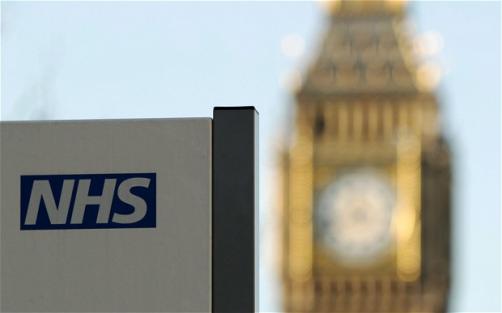
MPs ‘surprised and concerned’ over data transparency
pharmafile | January 3, 2014 | News story | Medical Communications, Sales and Marketing | Cochrane, Godlee, Goldacre, Roche, Tamiflu, transparency
An influential group of MPs in Britain have slammed the industry and regulators for not doing enough on trial transparency.
The Public Accounts Committee said it was ‘surprised and concerned’ to discover that information is routinely withheld from doctors and researchers about the results of clinical trials on treatments currently prescribed in the United Kingdom.
In their report published today the MPs say that this problem has been noted for years with many promises given, but “without adequate action being taken by government, industry or professional bodies”.
The MPs add that none of the latest proposals from regulators or industry “adequately addresses the issue of access to the results of trials from previous years on the medicines in use today”.
The Committee recommends that the Department for Health and the MHRA ensure that clinical trials, past and future, are registered on an appropriate register and that the full methods and results are available for independent scrutiny.
There should also be a ‘clear and frequent audit’ of how much information is available and how much has been withheld.
Richard Bacon MP, member of the Committee of Public Accounts, said: “The full results of clinical trials are being routinely and legally withheld from doctors and researchers by the manufacturers of medicines.
“This has ramifications for the whole of medicine. The ability of doctors, researchers and patients to make informed decisions about treatments is being undermined. Regulators and the industry have recently made proposals to open up access, but these do not cover the issue of access to the results of trials in the past which bear on the efficacy and safety of medicines in use today.
“Research suggests that the probability of completed trials being published is roughly 50 per cent. And trials which gave a favourable verdict are about twice as likely to be published as trials giving unfavourable results.
“This is of extreme concern to this Committee. The Department and MHRA must make sure, both prospectively and retrospectively, that clinical trials are registered and the full methods and results of all trials are available for independent wider scrutiny by doctors and researchers.”
Tamiflu and data sharing
The Committee looked at three areas: clinical trial results; how the Medicines and Healthcare Products Regulatory Agency (MHRA) and the National Institute for Health and Care Excellence (NICE) share information; and the stockpiling of Roche’s Tamiflu.
Bacon said that there is still “no routine sharing between NICE and the MHRA of information provided by manufacturers during the process of licensing medicines,” adding that more needed to be done between the two bodies to ensure greater sharing practices.
Last year the Committee began looking more deeply into the £424 million it spent on Roche’s ‘swine flu’ drug Tamiflu after the BMJ and the Cochrane Collaboration suggested that it might not be efficacious, and therefore a waste of taxpayers’ money.
Bacon said: “There is still a lack of consensus over how well the antiviral medicine Tamiflu, stockpiled for use in an influenza pandemic, actually works. The lack of transparency of clinical trial information on this drug to the wider research community is preventing proper discussion of this issue among professionals. We are disturbed by claims that regulators do not have access to all the available information.”
He added that the case for stockpiling antiviral medicines at the current level is based on judgement rather than on evidence of their effectiveness during an influenza pandemic. “Before spending money in future to maintain the stockpile the Department of Health needs to review what level of coverage is appropriate. It should look at the level of stockpiling in other countries, bearing in mind that the patent for the medicine runs out in 2016.”
The Cochrane Collaboration had petitioned Roche for more than three years for more Tamiflu data but was routinely blocked – it has now however been given the documents held by European regulators.
It says that is has discovered that many large trials on Tamiflu have not reported results and that for many more trials, only partial information was available.
Cochrane is now receiving full clinical study reports from Roche and this new information is being assessed by international researchers, who will submit updated evidence for peer review in the near future.
With this updated information the Committee said that the Department, MHRA and NICE should consider whether it is necessary to revisit previous judgements about the efficacy of Tamiflu.
AllTrials
The Committee took evidence from the Department of Health, the MHRA, NICE, Dr Ben Goldacre and Dr Fiona Godlee, editor-in-chief of the British Medical Journal, the last two of which have been campaigning for greater data disclosure.
This has included the creation of the AllTrials lobby group, which for the past year has been urging the industry to release all of its data past and present.
In an emailed statement to Pharmafile, AllTrials co-founder and Bad Pharma author Dr Goldacre said: “Today’s report is a complete vindication of AllTrials’ call for all the results, of all the trials, on all the uses of all currently prescribed treatments.
“We need urgent action from government, regulators, the General Medical Council, and all professional bodies to ensure that the full methods and results of all trials on all currently used treatments are made available to doctors, researchers, and patients.”
Richard Stephens, a cancer patient and a participant in five clinical trials, said: “Patients like me participate in clinical trials because we expect the information to be of use to other patients in the future. It is downright immoral to keep running trials and recruiting sick people to them if you aren’t going to make all the results known.
“And that’s especially true if we are being asked to enter trials for new drugs against old drugs, and we now find that the evidence for the old drugs has been hidden – if indeed it exists at all.”
He concluded: “For goodness’ sake; in our schools we teach our children the basic rules of scientific experiments and of making judgements about evidence. If our 14-year olds can grasp this why can’t multi-national drug company CEOs? Or do they just prefer telling half-truths and marketing slogans rather than the whole truth and nothing but the truth?”
Ben Adams
Related Content

Roche receives CE Mark for blood test to help rule out Alzheimer’s
Roche has been granted CE Mark approval for its Elecsys pTau181 test, the first in …

Roche candidate shows early promise for treating haemophilia A
Roche has announced encouraging early results from its phase 1/2 trial of NXT007, an investigational …

Roche advances treatment for Parkinson’s disease
Swiss biopharma, Roche, has announced its decision to proceed with phase 3 trials of prasinezumab, …






